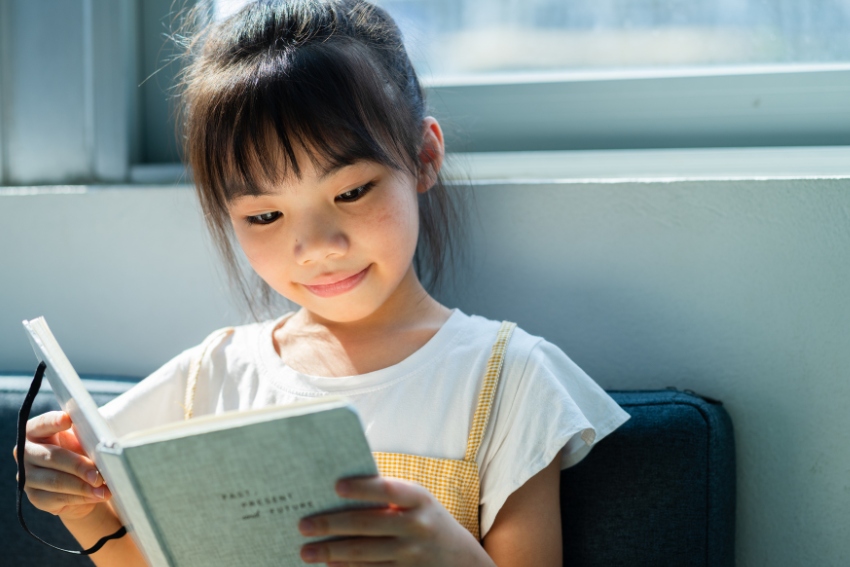English Literature Education in the UK – Guide for Parents
Navigating the various stages of English Literature education in the UK can feel like deciphering a complex piece of poetry. From the foundational years to the intricacies of A-Levels, the journey encompasses a myriad of texts, genres, authors, and literary techniques. If you’re a parent seeking to support your child through this educational odyssey, it’s essential to grasp not only the different stages but also the nuances that distinguish English Literature from English Language at each level.
Understanding this journey is about more than just helping your child prepare for exams. It’s about fostering a deep appreciation for literature that can enhance their critical thinking, creativity, and communication skills – benefits that go beyond the classroom. But where should you begin? How can you ensure that your involvement is effective and constructive? What resources are available to help you in this process?
English Literature in the Early Years
The journey into the world of English Literature begins during the early years, where the focus lies in fostering a basic understanding and love for stories, poetry, and the magical realm of words.
Defining the English Literature Foundation
In the early years, English Literature education is less about formal learning and more about instilling a love for stories. The curriculum at this stage usually involves the introduction of storytelling, simple poetry, and fables, encouraging children to engage with, interpret, and enjoy different forms of literature.
Storytelling
Children are introduced to a variety of stories, which can range from classic fairy tales to more modern children’s literature.
Fables
Fables are short stories that teach moral lessons, often through animal characters, presenting children with different scenarios to interpret and learn from.
Simple Poetry
Children are exposed to simple, rhyming poems that introduce the beauty and rhythm of language in an enjoyable and accessible way.
How Can You Help Your Child with English Lit in Early Years?

At this early stage, parental involvement can be instrumental in fostering a love for literature.
Reading Routines
Establish a regular reading routine with your child, like a bedtime story, to make literature a part of their daily life.
Encourage Interaction
While reading with your child, ask them questions about the story, the characters, or the moral of the fables, encouraging them to interact with the text and develop basic comprehension skills.
Resources for the Early Years English Literature
To assist in nurturing your child’s early love for literature, various resources are available.
Recommended Children’s Books
Classic children’s literature like “The Gruffalo” by Julia Donaldson or “The Very Hungry Caterpillar” by Eric Carle are great starting points.
Educational TV Shows
Shows such as “Bluey” or “Peppa Pig” can help children to understand storytelling and narrative structures.
YouTube Channels
Channels like “Storyline Online” provide a variety of stories read by celebrities, a fun way to engage young readers.
English Literature in Key Stage Three (Secondary School)
Transitioning from the enchantment of early years reading, Key Stage Three delves deeper into the fascinating world of English Literature. It’s here where students start to interact with a broader range of texts, genres, and more complex narratives.
Understanding the Key Stage Three Curriculum
The Key Stage Three curriculum expands the literary horizons for students, exposing them to more diverse texts and more intricate aspects of literary analysis.
Prose, Drama, and Poetry
Students explore a range of prose, drama, and poetry. They’re introduced to classic works from renowned authors such as Charles Dickens, William Shakespeare, and Emily Dickinson, as well as modern and multicultural literature.
Literary Techniques
More in-depth literary techniques are introduced, with a focus on understanding themes, character development, plot, and the use of figurative language.
Parental Tips for Key Stage Three Support
As literature becomes more complex, parents can play a crucial role in supporting their children’s understanding and enjoyment.
Encouraging Discussions
Discuss the themes, characters, or plot of the books your child is reading. This can deepen their understanding and encourage them to think critically.
Fostering a Reading Habit
Encourage regular reading beyond school assignments. This not only improves literacy skills but also allows children to explore different genres and develop their literary tastes.
Resources for Key Stage Three
There are a wealth of resources available to support your child’s learning during Key Stage Three.
Recommended Books
Consider classics such as “A Christmas Carol” by Charles Dickens, “Romeo and Juliet” by William Shakespeare, and contemporary works like “The Boy in the Striped Pyjamas” by John Boyne.
Educational TV Shows
BBC’s adaptations of classics, like “Great Expectations” or “Pride and Prejudice,” can bring the text to life for students.
YouTube Channels
The “CrashCourse” channel has an excellent series on literature that can help clarify complex themes and literary techniques.
GCSE English Literature
As students transition into their GCSEs, English Literature takes on a more structured and analytical approach. The focus shifts from broad reading to detailed analysis of selected texts, and for the first time, students will distinguish English Literature from English Language.
GCSE English Literature vs English Language
One of the critical distinctions during the GCSE years is the separation of English Literature and English Language as distinct subjects. While English Language focuses on language use, comprehension, and composition, English Literature involves the critical analysis of literary texts.
Exploring the GCSE English Literature Curriculum
During GCSE, students delve deeply into a smaller selection of texts, covering a mix of classic and modern literature, drama, and poetry.
Novels and Drama
Students study novels and drama texts in detail, exploring themes, characters, plot, and the author’s intentions. Texts often include classics such as “To Kill a Mockingbird” by Harper Lee and Shakespearean dramas like “Macbeth.”
Poetry
GCSE students analyse a selection of poems, often centred around a specific theme or era.
Parental Tips for GCSE English Literature
Parental support during GCSE years can be crucial in managing the increased workload and understanding complex texts.
Encourage Active Reading
Active reading techniques, such as highlighting key passages, summarising chapters, and noting down character developments, can help students understand and remember key points.
Practice Exam Questions
Regular practice with past exam questions can improve your child’s analytical skills and exam technique.
Resources for GCSE English Literature
A wealth of resources are available for GCSE English Literature to support studying and revision.
Recommended Study Guides
CGP’s GCSE English Literature guides are popular, offering comprehensive text summaries, character analyses, and theme explorations.
TV Adaptations
BBC’s GCSE Bitesize series offers helpful summaries and analyses of key GCSE texts.
YouTube Channels
“Mr Bruff’s” YouTube channel provides in-depth analysis and tips specifically aimed at GCSE English Literature students.
A-Level English Literature

As students progress to A-Level English Literature, they engage with literature on a much deeper, more critical level. This stage calls for sophisticated analysis, comparative studies, and an appreciation for how texts are shaped by their socio-historical contexts.
Delving into the A-Level English Literature Curriculum
The A-Level English Literature curriculum further hones students’ analytical skills and expands their literary repertoire. Students engage with a wide variety of texts, spanning different periods and genres.
Detailed Text Analysis
Students conduct a detailed analysis of prose, drama, and poetry. This involves exploring narrative structures, themes, characterisation, and literary techniques, along with the socio-historical context in which the works were written.
Comparative Analysis
For the first time, students are required to compare and contrast different texts, assessing how various authors approach themes, characters, and narratives.
Parental Tips for A-Level English Literature
Parents can support A-Level students in several ways, helping them navigate this challenging yet rewarding stage.
Encourage Broad Reading
Recommend that your child reads widely, including texts from different periods, genres, and authors. This not only helps broaden their understanding but also prepares them for the comparative analysis component.
Support Independent Research
Encourage independent research on the socio-historical contexts of the texts studied. Understanding these backgrounds can significantly enhance text analysis.
Resources for A-Level English Literature
There are numerous resources available to aid students in their A-Level English Literature studies.
Recommended Study Guides
Advanced study guides like York Notes’ A-Level Revision Guides can provide invaluable support, offering in-depth text analysis and advice on writing high-level essays.
Documentaries
Historical documentaries can help students understand the context in which the texts were written, complementing their text analysis.
YouTube Channels
Channels like “Stacey Reay” offer A-Level specific content, including text analyses, essay writing tips, and exam technique advice.
Conclusion
In the fascinating journey of English Literature education in the UK, we move from fostering a love for storytelling in the early years to in-depth analyses and comparative studies at A-Level. Each stage offers its unique challenges and rewards, enriching students with a profound appreciation for the power and beauty of language, the intricacy of narratives, and the universality of human experiences across time and culture.
Understanding the importance of each stage and the transition between them is not only essential for academic success, but it also paves the way for a lifelong love for literature. It’s important to remember that this journey isn’t merely about grades or examinations; it’s about nurturing critical thinkers, compassionate individuals, and ardent readers who will carry these skills and passions into their future endeavours.
And remember, no matter how challenging the path may seem, there’s always help available. If your child ever feels overwhelmed or unsure, the tutors at Edumentors are ready to lend a helping hand. With their in-depth understanding of the UK curriculum and their experience at top UK universities, they can provide tailored support to help your child navigate the complexities of English Literature. Whether it’s understanding a challenging text, improving essay writing skills, or boosting confidence, Edumentors’ tutors can guide your child towards their desired results. After all, they’ve been there themselves and understand what it takes to succeed.









